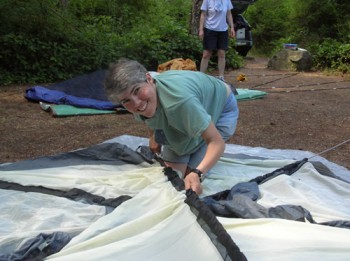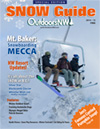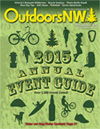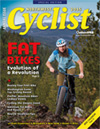Our Ecological Boot Print

Mindful Tips for Hiking and Camping
By Nathan Hale
You are only one person traveling through the world, but your very footsteps can cause rippling effects that can take years to recover. The following tips are provided to help you soften the impact of your next adventure.
- Enter the world mindful of the flora and fauna that live there. Just by being more aware of your surroundings, you will avoid unintended damage and have a richer experience. If you can, learn about the ecosystems you will be visiting prior to the trip.
- Walk softly. Avoid tromping plants, insects, and fungi. Tax your sense of empathy and imagine that they are sentient beings who feel pain, because who knows – they might be.
- In most natural areas, marked and maintained trails provide the best options for where you should conduct your hiking in a given area. Avoid creating unwanted “social trails” along switchbacks.
- Pack it in; pack it out, and pack out whatever someone else may have carelessly left.
- Going with a group? Carpool. Just getting started planning the trip? Pick somewhere close. Consider that every mile you drive to your destination has an impact on your destination as well as every habitat on the planet.
- Seek the advice of the pros. The ranger station is a great place to learn about the bare nuts and raisins of an area, including fire safety, trail conditions, sensitive habitats such as restoration sites, and the best places to camp.
- Don’t feed anything but yourselves.
- The smaller the “tent-print” the better. Camping with other people? Tight quarters reduces the area of impact, and may keep everyone so warm that you can forgo the morning fire and cut your carbon footprint as well!
- Choose a tent site with sparse vegetation and a little history. Often you can tell from the gestalt of an area that a particular site has been previously camped. Rather than trudging around for the hot new real estate, mind the delicate plants, fungi, and invertebrates, and plant your camp in kind.
- Who hasn’t considered that their uneaten food, nobly tossed into the brush, would find a happy home in the belly of a scavenger? Take your food scraps home and put them in your own compost.
- If you have to have that campfire effect, do so mindfully. Use a small fire; bonfires are out. Collect only dead branches that are dry and close to camp. Don’t tear off a live limb or rip up a decaying microcosm. And dragging heavy logs across the forest is like dragging a chainsaw across the kitchen floor.
- Don’t forget to dowse your fire. Burning down the forest isn’t what they meant with the expression, “Leave no trace.”
- So, when you are out in nature, remember why you came. The natural world needs every kindness and consideration that we can offer.
Nathan Hale is a Field Ecologist in San Jose, Calif.
Less-caustic camping
If you like this post, you might also enjoy:
Gov. Inslee Creates Outdoor Task Force
Polar Bear Swims
Holiday Gift Guide for the Outdoor Enthusiast
Montana Snow Resort Updates
Washington Bike Summit, March 16-17, 2015



